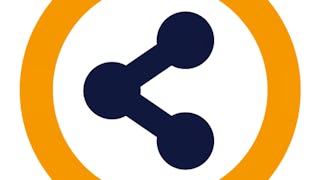This course introduces students to state of the art research in social epistemology. Social epistemology investigates the epistemic effects of social interactions: e.g., how we gain knowledge from social sources (others’ testimony, the media), how we should respond to disagreement, how groups (scientific teams, organisations) can know. It is among the most thriving areas in contemporary philosophy. Results in social epistemology have wide, direct impact on: (1) scientific practice (e.g. concerning academic publishing, guidelines for scientific authorship and collaboration, knowledge policy and debates over the role of the Internet in knowledge transmission and creation); (2) society at large (e.g. concerning voting, legal standards for criminal conviction, cross-cultural communication barriers, licensing mass communication policies, increasing social cohesion).

Ends in 5 days. Heat up your career with courses from Google, IBM, and more for £190/year. Save now.


Recommended experience
Skills you'll gain
Details to know

Add to your LinkedIn profile
May 2025
19 assignments
See how employees at top companies are mastering in-demand skills

There are 4 modules in this course
Overview: Introduce the staff and contextualize the course themes around social epistemology. Testimony: Discuss the reductionism debate and the nature of second-hand knowledge. Trust: Explore the relationship between testimonial knowledge and trust. Assertion: Analyze the connection between assertion and knowledge.
What's included
4 videos5 readings4 assignments
Group Belief: Examine the relationship between individual and group beliefs. Group Justification: Discuss the nature of justification for group beliefs. Group Action: Explore the conditions under which groups act collectively. Group Evidence: Analyze the concept of group evidence and its implications for rational belief.
What's included
4 videos4 readings5 assignments
Expertise and Peerhood: Understand the varieties of expertise and the concept of peerhood. Peer Disagreement: Evaluate rational responses to peer disagreement. Group Disagreement: Discuss the unique features of group disagreement. Knowledge Resistance: Explore the factors contributing to resistance to knowledge.
What's included
5 videos4 readings5 assignments1 discussion prompt
(Dis)information: Discuss the nature of disinformation and its epistemic implications. Norms of Reporting: Evaluate the norms governing media reporting and their impact on information dissemination. Attention and Inquiry: Analyze the relationship between attention, inquiry, and media influence. Nudging and Paternalism: Discuss the role of nudging and paternalism in shaping epistemic practices.
What's included
5 videos4 readings5 assignments
Earn a career certificate
Add this credential to your LinkedIn profile, resume, or CV. Share it on social media and in your performance review.
Instructor

Offered by
Explore more from Philosophy

Erasmus University Rotterdam

Universitat Autònoma de Barcelona

The State University of New York

Erasmus University Rotterdam
Why people choose Coursera for their career





Open new doors with Coursera Plus
Unlimited access to 10,000+ world-class courses, hands-on projects, and job-ready certificate programs - all included in your subscription
Advance your career with an online degree
Earn a degree from world-class universities - 100% online
Join over 3,400 global companies that choose Coursera for Business
Upskill your employees to excel in the digital economy
Frequently asked questions
Access to lectures and assignments depends on your type of enrollment. If you take a course in audit mode, you will be able to see most course materials for free. To access graded assignments and to earn a Certificate, you will need to purchase the Certificate experience, during or after your audit. If you don't see the audit option:
The course may not offer an audit option. You can try a Free Trial instead, or apply for Financial Aid.
The course may offer 'Full Course, No Certificate' instead. This option lets you see all course materials, submit required assessments, and get a final grade. This also means that you will not be able to purchase a Certificate experience.
When you purchase a Certificate you get access to all course materials, including graded assignments. Upon completing the course, your electronic Certificate will be added to your Accomplishments page - from there, you can print your Certificate or add it to your LinkedIn profile. If you only want to read and view the course content, you can audit the course for free.
You will be eligible for a full refund until two weeks after your payment date, or (for courses that have just launched) until two weeks after the first session of the course begins, whichever is later. You cannot receive a refund once you’ve earned a Course Certificate, even if you complete the course within the two-week refund period. See our full refund policy.
More questions
Financial aid available,


